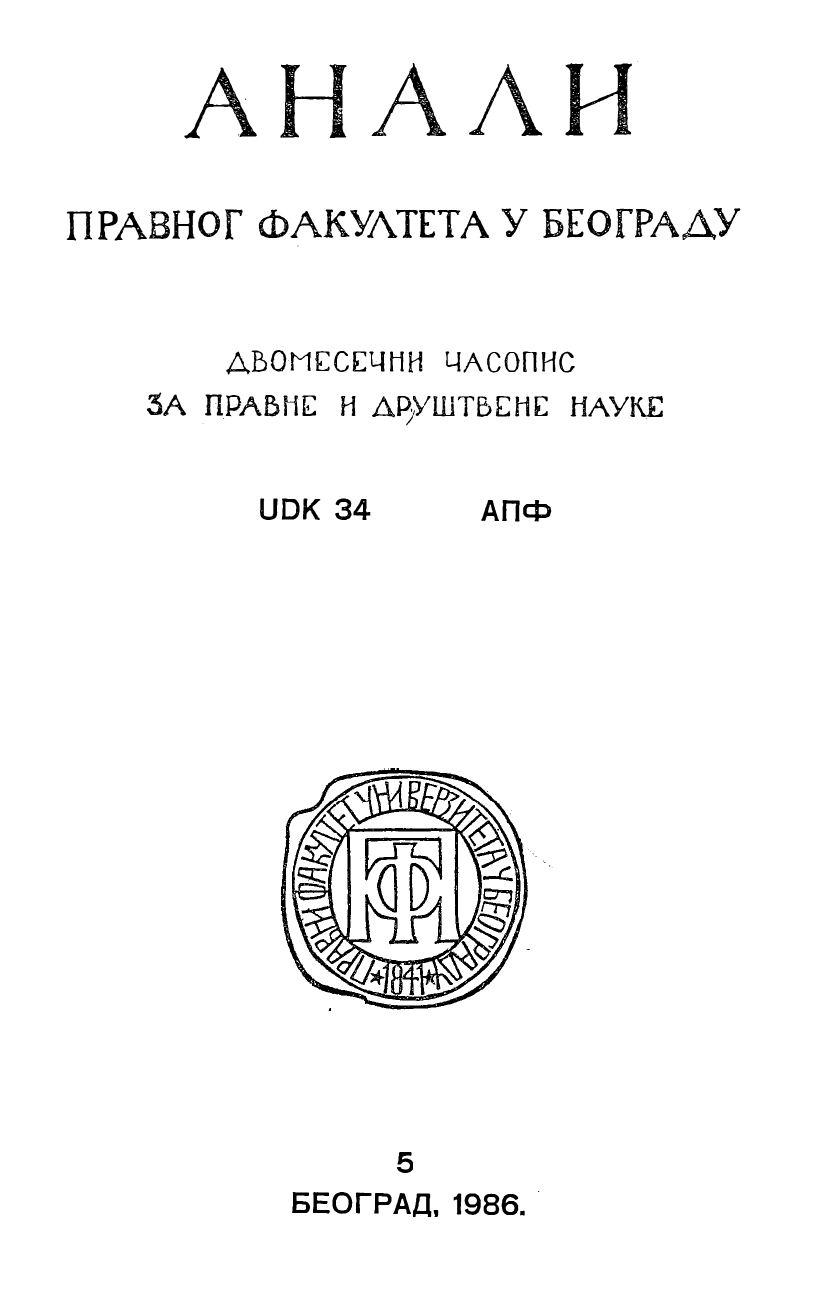НЕКА ПИТАЊА НАУКЕ О МЕЂУНАРОДНИМ ОРГАНИЗАЦИЈАМА
SOME PROBLEMS OF THE SCIENCE OF INTERNATIONAL ORGANISATIONS: THE INTERNATIONAL ASPECT
Author(s): Obrad RačićSubject(s): Law, Constitution, Jurisprudence, International Law
Published by: Правни факултет Универзитета у Београду
Summary/Abstract: Quantitative data point out at a stubborn trend of the increase in number of international organisations, while dilligent assumptions witness to the forecast that this number shall only be increased. On the other hand, due to the rising inter-dependence of states (economic, financial, in the area of security, technological, and the like) and in spite of factors acting in the opposite direction (sovereignty, national interest conceived in its narrow sense, differences between the states regarding their socio- -economic order, etc.), the competences of international organisations are constantly expanded (although, not so intensively, also the powers they are vested with). In spite of the rise in importance of the entirety of .the international organisations, the literature on international organisations is still not sufficiently rationalized: while the one concerning the United Nations is rather numerous, the study of specialized institutions of the UN and of the regional international organisations already suffers from serious shortcomings; the study of subregional and international organisations and particularly of the interested states is, on the other hand, approached only from time to time, partially and with the lack of system. While beginning from the number and heterogeneousness of the existing international organisations, as well as from the state of affairs of the science of international organisations, the author primarily elaborates two questions which are considered as basic from the stanдрoint of international law: firstly, what is the way of coordination of rights and duties of states in many international organisations they participate in, and, secondly, what is the degree of the possibility for a coordinated action of the existing international organisations. While staying this time in the limits of international law aspects of the science of international organisations — and not entering into the subject matter of political processes developing inside them — the author makes an appeal for a more balanced approach in the study of international organisations. Namely, although! it is correct that there are more significant and less significant international organisations, one should also emphasize that the entirety of international organisations is much more important even from the most significant one of them, as well as that the general knowledge on the entirety of international organisations is necessary in order to envisage the possibilities and limitations even of those which are considered as the most significant.
Journal: Анали Правног факултета у Београду
- Issue Year: 34/1986
- Issue No: 5
- Page Range: 437-454
- Page Count: 18
- Language: Serbian

